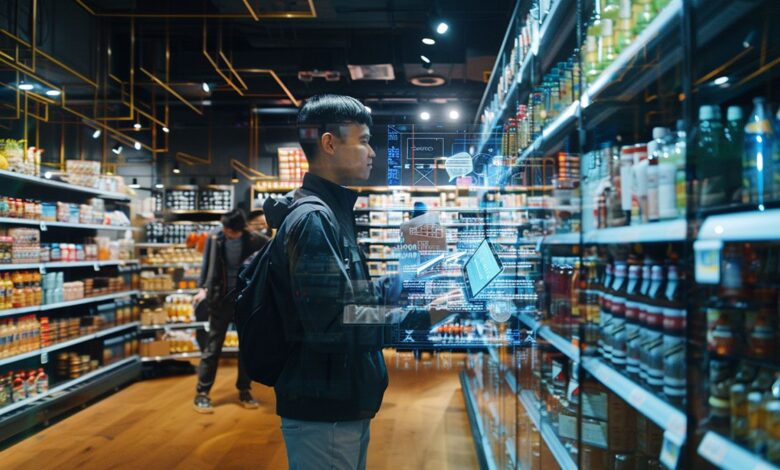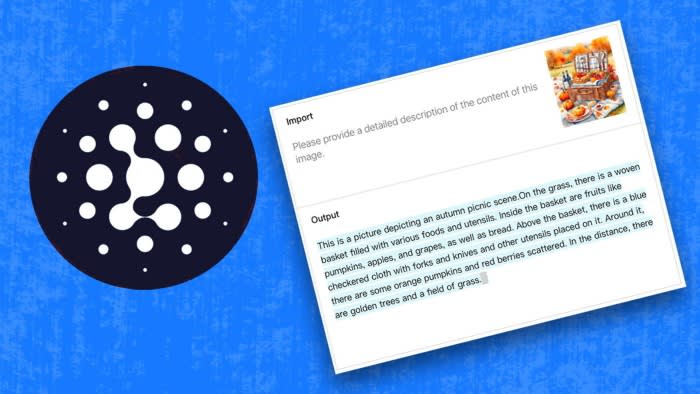Salesforce Brings Unified Data and Generative AI to Consumer Goods Cloud

Salesforce’s latest clap of AI “rolling thunder” about generative AI enhancements brings key innovations to Consumer Goods Cloud. By harnessing the power of the Einstein AI platform, already embedded in Sales Cloud and Service Cloud, Salesforce is now supercharging its industry-specific offering for consumer goods companies with intelligent tools to optimize planning and execution.
Salesforce Consumer Goods Cloud is an industry-specific solution designed to help consumer goods companies optimize their route-to-market processes. It unifies trade promotion management and retail execution capabilities on a single platform, enabling seamless collaboration between headquarters and field teams. By leveraging Salesforce’s core CRM functionality and the power of the Einstein AI platform, Consumer Goods Cloud empowers companies to drive profitable growth through data-driven insights and intelligent automation.
“Consumer goods companies are laser focused on profitable growth. Now, with the latest Salesforce innovations for Consumer Goods Cloud, they can unify consumer and customer data to plan promotions with precision, give every field rep the tools to increase sales and reduce downtime while onsite, and infuse trusted AI into the flow of work for every service agent to solve problems and upsell more frequently,” explained Rob Garf, VP and GM of Retail and Consumer Goods at Salesforce. “In short, every consumer goods company can now transform into an AI Enterprise.”
What’s New in Consumer Goods Cloud
The Consumer Goods Cloud updates focus on connecting Salesforce’s Data Cloud to harmonize structured and unstructured data with Einstein generative AI capabilities. This potent combination extends three key areas of functionality:
- Data Cloud for Consumer Goods: Account managers can now unify account and industry data to build rich customer profiles, segment accounts down to the individual store level, and design hyper-localized assortment and promotion plans. For example, a soft drink distributor could identify which specific citrus-flavored sodas are most popular in certain Mexican convenience stores and optimize replenishment.
- Einstein Copilot Account Summarization: Directly within the service console, agents will see AI-generated account summaries, eliminating the need to toggle between screens and knowledge articles. Summaries span last interactions, order history, satisfaction scores, and promotion details, equipping agents to rapidly resolve inquiries and intelligently upsell.
- Consumer Goods Cloud Einstein 1 for Sales: This bundled set of AI-powered enhancements arms sales managers, field reps, merchandisers, and delivery drivers with productivity and revenue-boosting insights. Real-time notifications and recommendations on stock levels, replenishment, special handling needs, and payment collection keep field teams responsive and effective.
The Salesforce Embedded AI Difference
Salesforce’s approach of embedding AI via a unified Einstein platform, rather than piecemeal enhancements, continues to bear fruit. The Consumer Goods Cloud release illustrates three key advantages of this strategy:
- Consistency: With Einstein already deployed in Sales and Service Clouds, Salesforce can efficiently extend proven AI tools to industry-specific use cases. Trailblazers benefit from familiar interfaces and interaction paradigms.
- Completeness: Embedding AI at the platform level lets Salesforce enhance the entire workflow from planning to execution. Consumer goods companies can apply intelligent insights into both back-office processes like promotion management and field activities like stock checks and payment collection.
- Continuous Innovation: The Einstein platform serves as a conduit for rapidly deploying Salesforce’s latest generative AI advancements to each cloud. Consumer goods customers can trust they are always accessing state-of-the-art capabilities.
Mars Snacking, one of the world’s largest consumer goods companies, is already realizing the potential of Salesforce’s AI-powered industry cloud. “At Mars Snacking, we are on an ambitious journey to rewire and almost double the size of our business by 2030,” noted Bartek Kononiuk, Global Head of Product – Trade Promotion Management. “Consumer Goods Cloud and Trade Promotion Management will enable us to improve our business processes, data availability, and user experience in critical growth-enabling areas.”
AI Innovation Is Here, But At What Cost?
As the consumer goods industry races to keep pace with rapidly evolving buyer expectations, Salesforce’s embedded AI solutions for Consumer Goods Cloud arrive at an opportune moment. By democratizing access to generative AI and data management capabilities, Salesforce is empowering consumer goods companies of all sizes to optimize decision making, boost field productivity, and ultimately drive profitable growth.
However, this cutting-edge functionality comes at a premium. Salesforce’s Einstein AI enhancements often carry hefty per-user surcharges, sometimes exceeding $100 per month. For large deployments spanning thousands of employees, these costs can quickly escalate. Consumer goods companies must carefully weigh the productivity and revenue gains against the added licensing expense.
Furthermore, while Salesforce is currently setting the pace for enterprise generative AI, the technology itself is still immature. Early adopters will encounter cases where the AI delivers less than satisfactory results. Salesforce’s Trust Layer aims to mitigate these risks, but companies should still approach generative AI with a clear-eyed understanding of its current limitations.
The “rolling thunder” of Einstein enhancements across the Salesforce portfolio shows no signs of slowing down, paving an enticing yet expensive path for customers to become full-fledged AI Enterprises. As the costs and benefits come into sharper focus, consumer goods companies will need to strategically assess where and how aggressively to deploy these advanced capabilities. Those that strike the right balance could seize a significant competitive edge in the rapidly evolving digital landscape.



